With almost 10,000 locations across the United States, Taco Bell is extremely familiar and accessible. Most of us have tried a “crunchwrap supreme”, a “Baja Blast”, or a “Doritos Locos taco” at least once in our lives. But did you know that the founder of Taco Bell, Glen Bell, is not Mexican?
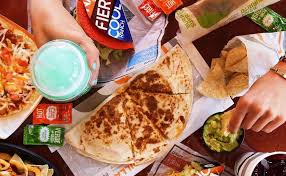
In fact, Glen Bell actually got his idea of Taco Bell’s famous hard shell taco from a restaurant in San Bernadino, CA that is still around today (Arellano, 2017). He used to go eat at Mitla Cafe every night, then go back home to try and re-create the recipe. So considering how Taco Bell came to be established, should Glen Bell’s act of copying a small restaurant to create his own multibillion-dollar chain be considered as cultural appropriation?
Is Taco Bell “cultural appropriation”?
Perhaps it is. From what I’ve learned, cultural appropriation happens when “a more privileged culture exploits another culture for their own benefit” (Oluo, 2019). By not acknowledging “the racial, ethnic, and cultural capitalist power structure in America”, cultural appropriation violates food justice and food equal opportunities (Kim, 2017). In the case of Glen Bell, he basically ripped off a small Mexican restaurant and claimed these “new” recipes as his own. But when food writer Gustavo Arellano interviewed the owners of Mitla Cafe, they seemed to be fine with it. Their restaurant was still doing really well and they said, “Our food is better anyway.” (Arellano, 2017). The creation of Taco Bell did not have any impact on their restaurant at all and they did not feel exploited in any way, so perhaps Taco Bell is not cultural appropriation.
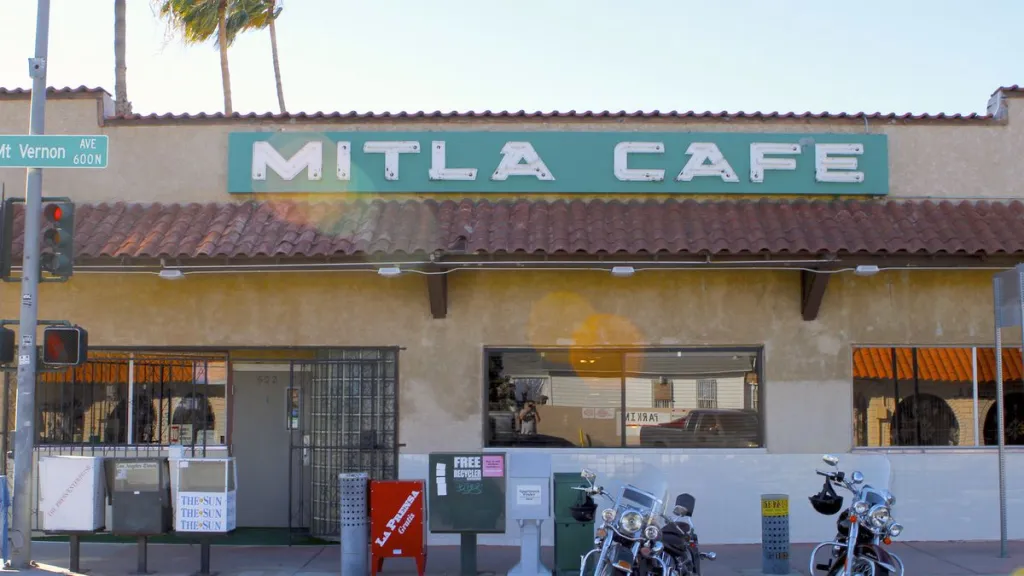
Mitla Cafe and their hard shell tacos. 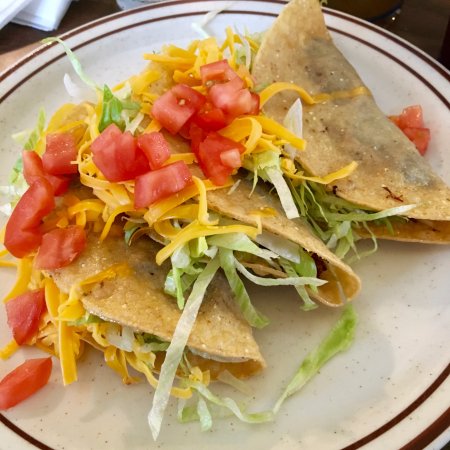
However, I think what disturbs me the most about Taco Bell’s origin is how it benefitted from the power imbalance that exists in the restaurant industry. There’s this power structure that surrounds food, along with its consumers and producers, and it unfortunately creates more societal disadvantages and lack of opportunities for minorities and people of color (Kim, 2017). I personally find it unfair and upsetting that Glen Bell, a white man who has far more opportunities and societal privilege than people of color, started his own brand thanks to their recipe and did not even give any ounce of credit or compensation to Mitla Cafe. Glen Bell copied the idea of a hard shell taco and marketed it to mostly white consumers and even today, Taco Bell’s menu items all sound Americanized and even kind of racist with their play on words.
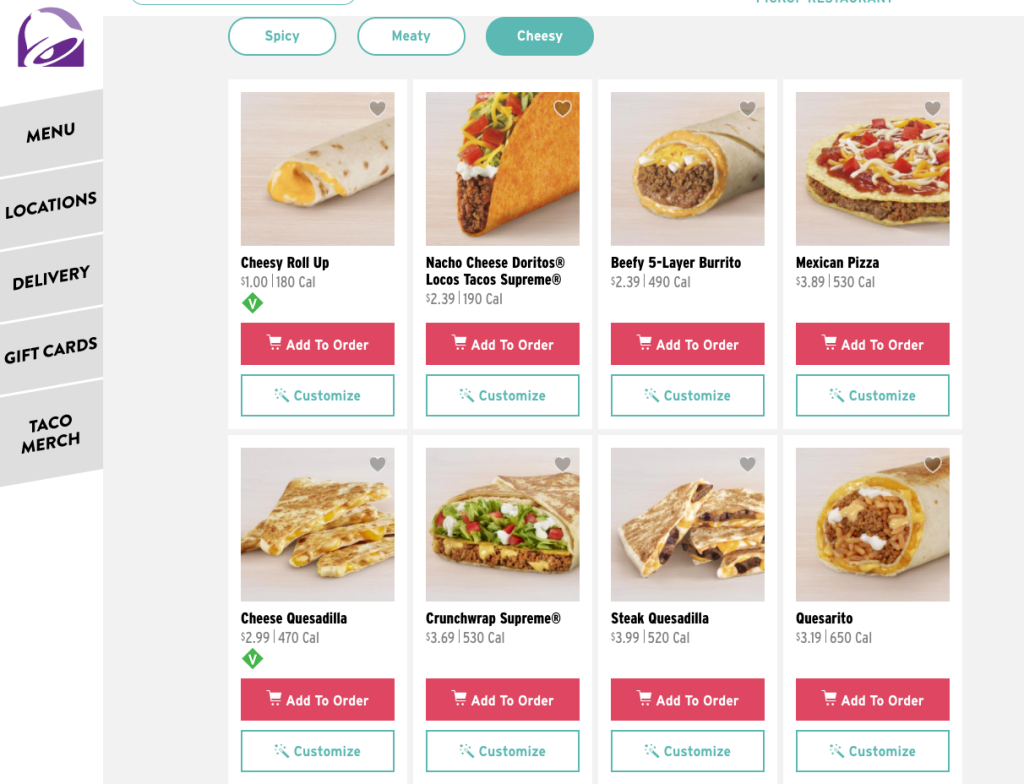
Rick Bayless and “columbusing”
Speaking of which, this reminds me of another controversial white chef who popularized Mexican food. Similarly to Glen Bell and Taco Bell, Rick Bayless also “translated” Mexican food and tweaked their descriptions to be more “appealing to white people” for his upscale Mexican restaurant in Chicago, Frontera Grill (NPR Podcast). Bayless even admitted himself that he wanted white people to start eating more Mexican food, so he took recipes and made them sound “less frightening” with terms like “caramalized onions” (Saini, 2016). This could be considered as columbusing: “the act of reckless and thoughtless appropriation (typically of rich white people) of a thing that has been around for years or decades (a thing that usually belongs to non-white people)” (Portnoy, 2016).
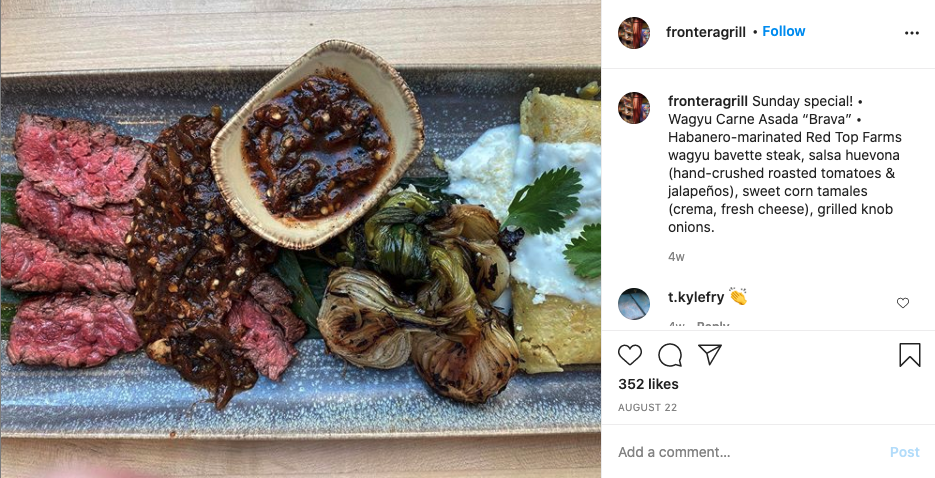
On a podcast, Bayless says that “people who think he cannot cook Mexican food because he is white are racists”. This is an example of “reverse racism” that Bayless was criticized for because he fails to recognize that an American-born chef like him has more privilege and “is more likely than an immigrant to have the connections and the means to grab investors or news media attention” (Godoy, 2016). I don’t think there’s anything controversial about the fact that Bayless is a white person who cooks Mexican cuisine for a living. He tries his best to be respectful of the culture and it’s good that he helped contribute to popularizing Latino food in the United States. I also learned that anyone has the right to represent or cook foods from a different culture or country (Godoy, 2016). However, Rick Bayless and Glen Bell should acknowledge that they “benefit from being a white male American with access to capital and a familiarity with a predominantly white and relatively wealth consumer base” and help out the Latino community in more ways than just profiting off their food (Saini, 2016).
Works Cited
Arellano, G. “Let White People Appropriate Mexican Food– Mexicans Do It to Ourselves All the Time”. OC Weekly. June 7, 2017.
Godoy, Maria. “When Chefs Become Famous Cooking Other Cultures’ Food,” NPR. March 22, 2016.
Kim, Dakota. “We’re Having the Wrong Conversation About Cultural Appropriation,” Paste, June 6, 2017.
Oluo, Ijeoma. Chapter 10, “What is Cultural Appropriation?,” So You Want to Talk About Race, USC Library Online
Portnoy, Food, Health, and Culture in Latino Los Angeles (2016). pg. 115-117. USC Library. Online.
Saini, Anne Noyes. “Other People’s Food: White Chef, Mexican Food” Podcast. Sporkful. March 21, 2016.
Hi Janice! I really enjoyed reading your blog. I especially liked reading and reflecting on your discussion of the power imbalance surrounding the restaurant industry that Taco Bell clearly exploited. It sucks that these disadvantages exist and that people will benefit off of the backs of other peoples hard work.
LikeLiked by 1 person
Janice, this was an interesting read! I really like your thoughts surrounding Rick Bayless. It is true that he has helped popularized Mexican food but his lack of awareness of being privilege as a white man in the food industry is unsettling. How hard is it to accept or acknowledge that you have had a less bumpy road in your career ? and not only that but recognizing that it is unfair for others ?
LikeLiked by 1 person
Hi Janice!
I find the history of Taco Bell so interesting because it is a clear example of cultural misappropriation. But also, because it seems to me that it has contributed to an stereotype of what Mexican food is like, and for many people, Mexican cuisine is minimized to the kind of food found in Taco Bell. I also find it interesting that the owners and workers of Mitla Cafe do not seem to have any negative feelings towards Taco Bell and its founder. It sounds like they were not affected by it, but I think it would be interesting to explore how Taco Bell has impacted Mexican cuisine, the way Mexican culture is perceived, or to what extent Mexicans themselves have contributed their labor to this chain.
Thank you for this interesting reading!
Best,
Majo
LikeLiked by 1 person
Hi Janice,
I agree with your classmates. Your example of Taco Bell is an interesting one–because it is also from 60 years ago. I don’t think you can get away with today what Glenn Bell did 60 years ago. Today he would DEFINITELY be called out for it, whereas back then it was just a guy starting a business. No problem!
Your generation is more “woke” and aware of these power imbalances than past generation. So, thanks for your eloquent words calling attention to the issue.
LikeLike